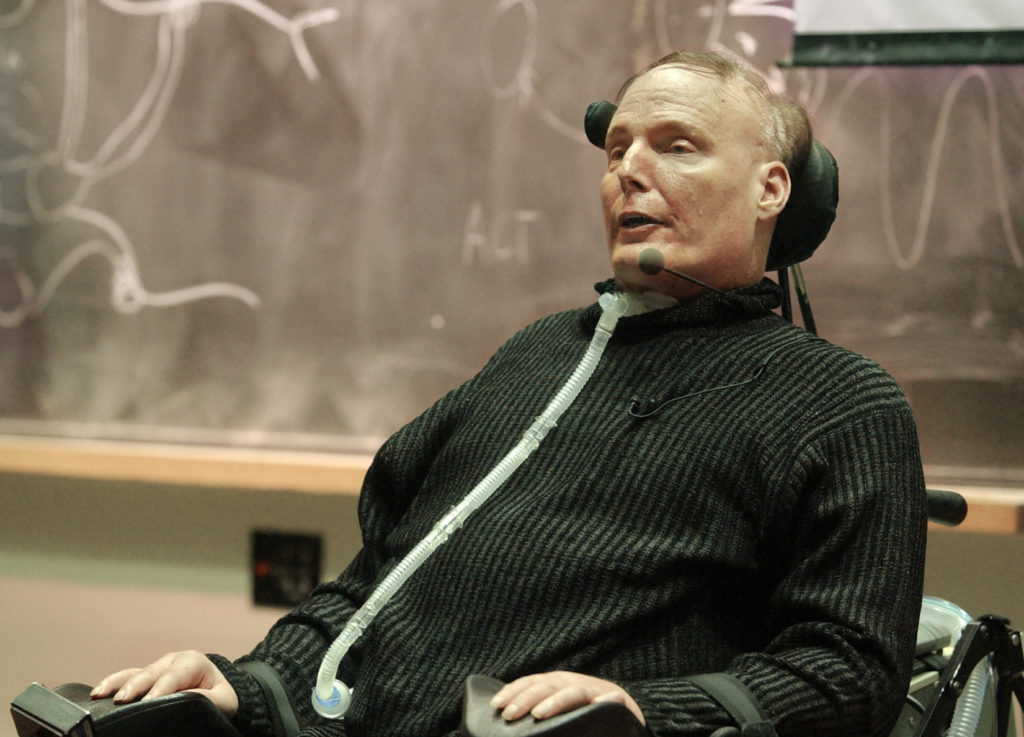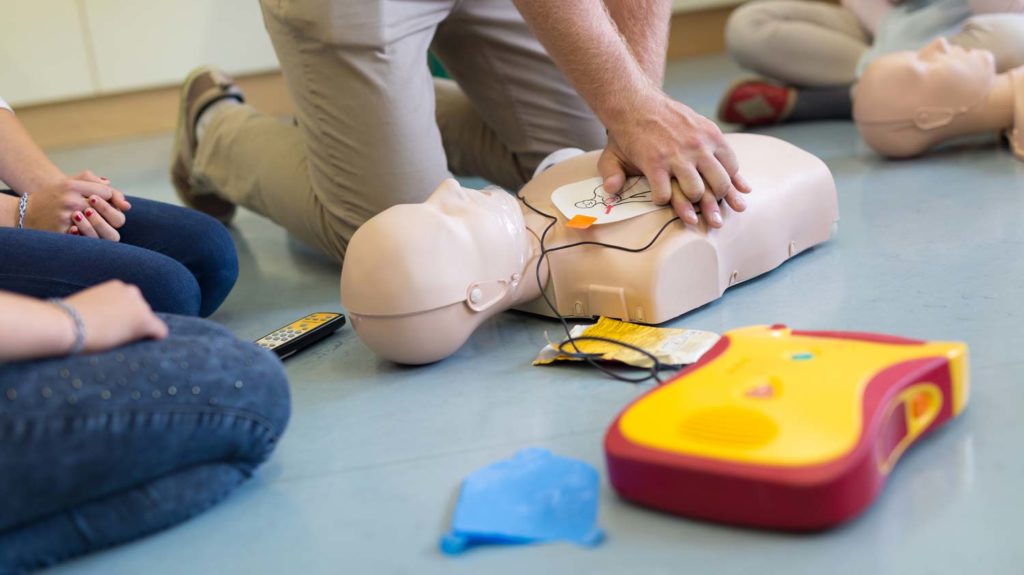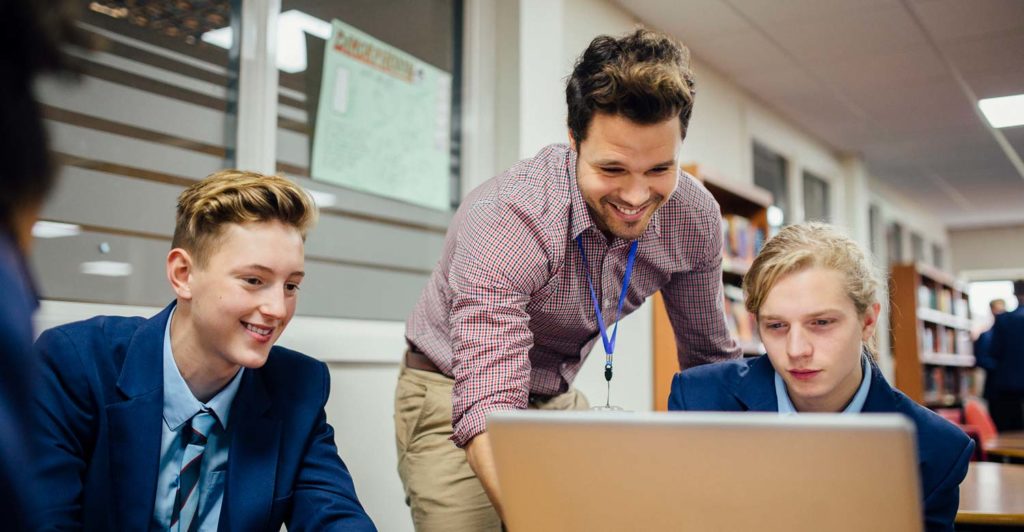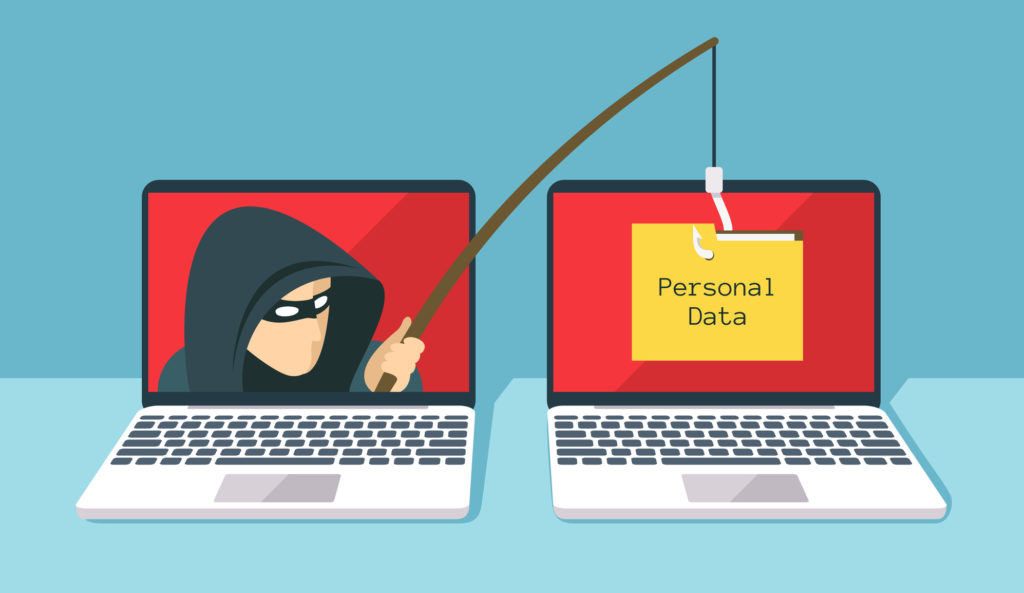Author: Alastair Hazell
Don’t let others define you
Working together to achieve more
Saving our seas from plastic
Taking the plunge
What’s your superpower?
Let me ask you a question – what was your favourite movie or television series as a child? Personally, I loved superhero films and television series such as Airwolf, the Greatest American Hero and Knight Rider. I dreamed that one day I might own a self-driving car and talk to my watch… and as the owner of a Tesla Model S and an Apple Watch, I guess I’m sort of there…
Ask me to pick an overall favourite movie and I would choose Superman II. Christopher Reeve’s man of steel was somewhat of an icon to me. I wanted to be him. And I confess to you now that I have an autographed photo of him on the wall in my home office. Another confession – I even enjoyed Superman III (don’t ask me about the hodgepodge that was Superman IV).
Superpowers
It may not surprise you to learn that I haven’t stumbled upon any superpowers of my own yet – unless you count exaggeration (which I can categorically state I’m 100 million times better at than you!). That said, I can’t completely dismiss the idea that I have a superpower. Afterall, they say you can’t prove a negative! I sometimes wonder if it’s just that I haven’t yet discovered mine.
Perhaps some of us never do. Let’s say your superpower is something really innocuous, like the ability to stick a post-it-note to a camel in a rainstorm. How would you ever know!? And then one day you find yourself in the middle of nowhere with only a camel for company and you need to get an urgent message to a nearby village. As you start searching your pockets for an old post-it-note and pen, it starts to rain…
Jokes and stationery essentials aside…
A common theme running through all the movies and tv programmes I have mentioned in my article is one of making a positive impact on others.
I grew up wanting to make a difference – and that’s something that continues to drive me. I’ve come to appreciate that we can all make a positive difference to the lives of others and to the world in which we live – we don’t need to possess superpowers to do it.

Man of steel
I have very fond memories of watching Christopher Reeve’s Superman films in my childhood. And I believe a definite parallel exists that having portrayed the Superman character on screen as an actor, he went on to become a real-life Superman following his tragic accident in 1994. I remember feeling genuine sorrow when, as a fifteen-year-old boy, I heard about his accident on the news. And that feeling was echoed ever more deeply when I heard of his sad passing in 2005.
What I wasn’t fully aware of until now is just how much of a positive influence Christopher Reeve had in the eleven years between his accident and death…
Nothing is impossible
In 1994, Reeve was taking part in an equestrian competition. As his horse prepared to jump the third fence, it made a sudden refusal, projecting Reeve forward off the horse and onto the ground; snapping his neck and shattering the first and second vertebrae in his spine.
Although Doctors skillfully and successfully operated to reconnect Reeve’s skull to his spine, he was left paralysed from the neck down and was put on a ventilator – something he would remain on for the rest of his life. Despite initially contemplating suicide, having awoken to discover he was a vent-dependent quadriplegic, Reeve set out on a determined new path – one that would make an enormous impact. Supported by his wife Dana and his family and friends, not only did he set himself a goal to walk again, but he also continued to direct films, act and, importantly, become a spearhead and spokesman for research into treating spinal cord injuries.

Christopher Reeve speaking at MIT about stem-cell research in 2003 (photo by Mike Lin)
As well as being elected Chairman of the American Paralysis Association and Vice Chairman of the National Organization on Disability, Reeve also co-founded the Reeve-Irvine Research Centre. This is now regarded as a leading spinal cord research centre. In addition to this, he founded the Christopher Reeve Foundation (now the Christopher and Dana Reeve Foundation) to fund research. To-date the foundation has helped generate more than $22m in quality-of-life grants and $138m for research, leading to new developments in technology that have helped paralyzed patients walk again.
In 2006 the Reeve-Irvine Research Centre said, “in the years following his injury, Christopher did more to promote research on spinal cord injury and other neurological disorders than any other person before or since.”
And although he wasn’t quite able to achieve his personal goal of walking again, Reeve’s steely determination and hard work to maintain fitness and muscle health meant that he confounded specialists by regaining some motor function and recovering movement in his fingers and legs. I find myself wondering just how far along his recovery would have reached today, had a reaction to an antibiotic not robbed him of his life.
“So many of our dreams at first seem impossible, then they seem improbable, and then, when we summon the will, they soon become inevitable.”
– Christopher Reeve
Keep on making a difference
And so for me, Christopher Reeve will always be an icon and an inspiration. He was a man of steel; inner steel. He sets an incredible example of the fact that sometimes life throws us a massive kryptonite curveball we’re not expecting. It’s then up to us to decide what to do next.
And it goes to show that the opportunity to make a difference to the world we live in never fully disappears, it simply changes.
Alastair
Teach kids these key life skills in schools
I wish I was wearing a giant bowler hat right now. Why? So that I could take it off to teachers, who run themselves into the ground in order to educate and energise the imaginations of our next generation of amazing, inquisitive, entrepreneurial minds.
I’m not going to debate the good and bad elements of our education system in this article. Instead, I want to focus on some of the key life skills that I would like to see included in the secondary school/college curriculum or, as an alternative, taught by parents at home.
And there is a key point to consider here – if we were living in an ideal world, all parents would be teaching these important skills to their children. However, we don’t live in an ideal world.
Let’s take a look at the list…
- Basic first aid
- Basic financial awareness and planning
- Mental health
- Touch typing
- How to prepare for a job interview
- The importance of guarding your privacy
- How to learn
- The art of conversation
1) Basic first aid

I’m amazed that first aid isn’t included in the secondary school curriculum in the UK. I would regard basic first aid to be one of the most important skills that a person can learn. It’s life-saving stuff, pure and simple. For a long time, St John Ambulance and the British Red Cross have been campaigning for it to feature. Meanwhile, European countries such as France, Denmark and Norway have included first aid successfully as part of their national school curricula. So, why not us?
In 2014, Simon Gillespie, Chief Executive of the British Heart Foundation commented that: “Lives are needlessly lost to cardiac arrests every day because not enough people have the skills or confidence to perform CPR. But the simple measure of teaching all children these skills could save thousands of lives. All parties should now follow this example and commit to making CPR an integral part of every child’s education.”
In the last decade, we’ve seen high streets being equipped with defibrillators for public use. They are said to be very simple to use. However, as with most things in life, confidence comes from experience. And so it makes sense for schools to teach their students how to use this equipment, how to put someone in the recovery position and how to provide CPR. I have no doubt that teaching these skills will save lives.
The suggestion of including first aid in the secondary school curriculum isn’t a new one. The Compulsory Emergency First Aid Education Bill, a bill to require the provision of Emergency First Aid (EFA) education by all state-funded secondary schools, went before parliament in 2015. Sadly, however, it went no further, with suggestions that tactics were used to block it.
2) Basic financial awareness and planning

I have many contacts in the finance industry and over the course of the last couple of years I’ve asked them the same question – “why don’t we teach basic financial planning in secondary school education?” The reaction from each person has been notably similar – a shrug of the shoulders and an agreement that it should be.
Although financial awareness and planning aren’t included in the national curriculum, they are sometimes taught under the PHSE (Personal, Social and Health Education) non-statutory subject.
I strongly believe that basic finance awareness, budgeting and planning are some of the most important topics one can learn. Approach your finances the right way at the start of your adult life and you’ll give yourself a far better chance of being financially stable and avoiding the crippling pitfalls of bad debt.
We should teach youngsters how to increase their credit score (through good debt and timely payments). We should teach them how to save – not only for the things they want to buy but also for their retirement. We should show them how to read numbers, read a balance sheet, create a simple income and expense spreadsheet. And we should teach them all about payday loans and why a loan with 1200% APR is such a bad thing!
I have written a number of articles about compound interest, and have designed one of the world’s most popular online compound interest calculators (used by teachers throughout the world). When people learn about the power of compound interest, both positive and negative, the benefits of regular saving are really brought home.
As I read in a recent Quora article: “Learn and respect finance, and you will find your wealth increases much easier and faster than those around you.”
3) Mental health

For a long time, mental health has seemed like a taboo subject. And although there now appears to be more openness about it, it’s still an area that can be awkward to talk about. I believe that learning about and discussing mental health can help youngsters better understand and empathize with those who suffer with it.
I’ve seen several petitions pushing the case for mental health’s inclusion in the curriculum, the most notable of which was in 2017 – Make mental health education compulsory in primary and secondary schools and over 103,000 people signed it. It subsequently went before parliament. However, the conclusion from the government was that “Schools should decide how to teach pupils about mental health developing their own curriculum to reflect the needs of their pupils.”
At the moment, then, it’s very much all about schools coming up with their own methods for helping children understand mental health, assuming they consider it important enough and easy enough to cover.
4) Touch typing

I’m fully aware that some schools (public and private) are adding touch typing classes as options for additional learning. However, I believe they largely remain voluntary and not compulsory.
I question why all schools haven’t been teaching touch typing since the start of the century. Using a computer has become a fundamental skill in both employment and home life. Being able to type quickly and efficiently can save an enormous amount of time and be a key skill in a student’s future career.
For me, I was self-taught. Back in the late 1990s I sat down with a piece of software called Mavis Beacon. I must admit that I’m not perfect at it, I have a couple of bad habits. However, I’m quick enough that I can reply to emails quickly and write at a quick speed. This maximises the efficiency and potential of my work day.
Perhaps if your child isn’t being taught at school, sit them down with a computer programme (there are many great ones available on the internet now) and teach them this key skill yourself.
5) How to prepare for a job interview

I could easily bolt on ‘preparing a CV’ to this one as a key skill. When applying for a job, a CV may sit on the desk of the employer with anywhere between 5 and 300 other CVs. A person’s CV needs to stand out, and the chances are that if there are 300 CVs to go through, they will flick through them with a very quick and decisive yes or no. Of those 300, maybe only 10% will end up getting through to the second stage of being read. The content and layout of one’s CV, then, is super important.
Get the application right and the applicant be heading for an interview. I’ve taken charge of numerous interviews in my life and witnessed plenty more. I’ve worked with HR specialists and discussed this area with them. There are some key things that, time and time again, people attending interviews get wrong. Here are a couple of them:
a) Preparation is key. A candidate should turn to an interview knowing as much as they can about the company they’re applying to work for. There’s no excuse for not researching this – the internet is everyone’s friend. A candidate should find out as much info as they can; what the business/company’s mission statement is, their brand, their ethics. Without this knowledge, they might as well not bother turning up to the interview.
b) Consider and prepare an answer to this key question: ‘why do you want to work here?’ As advice, it’s a good suggestion to focus an answer on what you admire about the company or how you can contribute to it and NOT what you intend to get out of it.
I think there’s also an opportunity to take some time to role play for interviews, and this is something that every parent can help their child practice.
6) The importance of guarding your privacy

In many ways, this key skill follows on well from number 5. A number of studies have shown that employers often look at the social media accounts of applicants pre-interview. What someone posts on social media, then, can have a dramatic impact on their future job ambitions.
I honestly believe that people have a far too lackadaisical attitude towards their privacy. With the invention of social media has come a sudden desire to share everything.
The problem is this – once information is out there, it’s very hard to get back. We’ve featured one of the problems with this above. However, there are many more – identity theft, for example. The more blasé someone is with their personal information, the more opportunity there is for people to take advantage.
From what I understand, data privacy, internet safety and identity theft can be covered by teachers under PSHE (Personal, Social and Health Education) at various key stages. However, I would like to see them taught to every student, whether at school or at home.
Data privacy is fast becoming a big issue. Indeed, I believe the next 10 years will see us taking much more control of our personal data and being much more careful about who we allow to see it.
7) How to learn

This sounds like a strange ‘skill’ to be discussing, doesn’t it? Everyone’s mind works differently, so how can we possibly have a teaching/learning system that works for everyone?
John Dunlosky, professor of psychology at Kent State University in Ohio, summed the issue up well in an article in American Educator in 2013:”the emphasis is on what students need to learn, whereas little emphasis – if any – is placed on training students how they should go about learning the content and what skills will promote efficient studying to support robust learning.” He continued, “teaching students how to learn is as important as teaching them content, because acquiring both the right learning strategies and background knowledge is important – if not essential – for promoting lifelong learning.”
What sort of strategies have been suggested? Perhaps basic ideas like underlining important parts of texts, drawing pictures or diagrams, discussing the subject with others, making notes of things the student doesn’t understand. Every student will be different, so it’s about each student finding out what works for them. There’s a very good article on this subject here.
8) The art of conversation

“Put your hand up if you’re shy…” – I think we can all see why this wouldn’t work in a school assembly. A true paradox.
Communication and conversation are, for me, key skills for absolutely everything in life. From making friends to meeting your life partner, to selling, to negotiating a good deal on just about anything.
I can admit to being very, very shy as a child and having very poor conversation skills This continued through my teens and well into my twenties. I would, quite literally, not be able to talk to anyone without huge, awkward silences occurring. When I tell people now that I used to be incredibly shy, they struggle to believe me. So, what happened?
Quite simply, when I hit 30 I made the decision to improve the skills I was weakest at. I decided to get the hell out of my comfort zone, learn some conversation skills and push myself into talking to people more – I was steaming straight into a potential car crash, I thought. And, I’ll be honest, it was difficult.
I’m more than happy to confess to people that I’m still shy. However, the difference now is that I’m comfortably shy. I like my time away from people, but when I meet someone in public, I can communicate easily and put the other person at ease. And in addition, by going through my learning process, I’ve learned a lot about psychology, personality and body language. I can appreciate, empathise and understand people a LOT better.
I find myself looking back and wondering how I might have coped in school and in my early life if I had learned some basic conversation and communication skills. In addition, I conversely wonder what might have happened had I not pushed myself to learn them in my thirties.
The world revolves around communication. And, one of the most important ambitions for many people is to find a life partner. Without communication skills, that becomes a whole lot harder.
Conclusion
I’ve written this article not to have a dig at our current curriculum, but to point out a few things that I think could be bolted onto it – either during school hours or by parents at home. There’s also an interesting Twitter account called Life Hacks for Kids that’s worth following for ideas.
Alastair
Can you measure your success in feet?
Zlatan Ibrahimovic is a Swedish maverick footballer and self-proclaimed ‘living legend’. An exceptionally gifted sportsman, Zlatan is now in the twilight of his career, having played for some of the world’s biggest clubs. Throughout his footballing life, Zlatan’s incredible talent has always been backed by an unflinching self-belief. Indeed, some people might have suggested that when he signed for Man Utd in 2016, his new club consider widening the dressing room door to accommodate his head.

It isn’t his successes, talent or immense earnings that I want to focus on today though, but an excerpt from his memoir, ‘I Am Zlatan.’ As his football career began taking off, Zlatan bought his dream house for $3.5m and began renovating it…
“On the red feature wall in the foyer, I hung a big picture of two dirty feet. When my friends came by, they were all like, ‘Awesome, wicked, cool place you’ve got here. But what are these disgusting feet doing here? How can you have this shit on your wall?'”
“You idiots,” Zlatan said. “Those feet have paid for all of this.”
Why I like this story
I particularly like this anecdote because it symbolises something important. No matter what you achieve in life or how successful you are, it’s important to take time to appreciate where you’ve come from and how you’ve got to where you are. By doing so, you can keep a perspective on life and enjoy your achievements more.
“Keep your eyes on the stars, and your feet on the ground.” – Theodore Roosevelt
Sometimes its easy to get carried away with the pace of life and be constantly looking forward to the next part of your journey. I’m guilty of this myself and I’ve learned to appreciate that with my success I’ve also had a lot of good fortune, which I’m very grateful for.
I believe we shouldn’t wait until we’ve retired (or have one foot in the grave) to look back on what we’ve achieved. And perhaps if we all learn to appreciate ourselves more throughout our lives, we’ll become a society that requires less validation and recognition from other people. Pat yourself on the back… just don’t become a big head (else you’ll need to widen your own front door).
Alastair
Engage your inner detective
I was enjoying a lovely walk with my wife at the weekend when we found ourselves partaking in the following dialogue:
Wife: Oh, poor thing, there’s a dead bee on the ground over there… ????
Me: I’ll go get some sugary water, maybe it’s just dehydrated…
Wife: I don’t think that’ll help
Me: Why’s that?
Wife: It’s been run over by a car…
Assume makes an ‘ass’ of ‘u’ and ‘me’
As I look back on the conversation, I think there’s an interesting discussion point hiding amongst the mildly-morbid humour. It’s a reminder that when faced with an opportunity or situation, it’s important to get as much information as possible, as quickly as possible, before taking action. If you’ve drawn an instant conclusion, ask yourself if there’s an extra piece of evidence to back it up before you act upon it.
From The Adventures of Sherlock Holmes, by Sir Arthur Conan Doyle, comes this quote:
“I have no data yet. It is a capital mistake to theorise before one has data. Insensibly one begins to twist facts to suit theories, instead of theories to suit facts.”
Why is this important right now?
There’s no denying it, we live in a social media world where fake news stories and fake celebrity endorsements have become a big problem. The former have aimed to influence people into thinking, and indeed voting, a certain way. They’ve commonly ridden a careless tide of sharing and re-tweeting without checking facts. The latter are finding increasing success in conning people out of their money. Only yesterday, consumer campaigner Martin Lewis announced he would be launching UK High Court proceedings against Facebook for fake adverts appearing on the platform. I welcome this move, not just for its potential to start pushing Facebook into re-considering its ad review process, but also because it brings greater attention to the issue. If this move results only in a few less people being caught out by these scams, that’s a victory in itself.
Of course, the highlighting of this issue comes only a couple of months after the revelations about Cambridge Analytica’s behaviour. It all goes to show that we need to be far more careful with protecting our personal data and should be prepared to investigate fully and ask questions before parting with our money on anything resulting from a social media advert or post – no matter how persuasive it is. Take extra time and don’t be afraid to ask your friends or family for their opinions. And remember that old saying, “if it looks too good to be true…”

Solving problems
On a slightly different note, how many times have you gone to solve a problem only to find, further down the line, that the problem wasn’t what you thought it was? To use the analogy of a baseball or cricket game, you’ve gone to smash the ball out the park only to realise it’s a curveball (or a ‘flipper’ for all you cricket fans), leaving you swatting at fresh air. You walk away feeling foolish that you’ve wasted so much time and energy – if only you’d taken just a moment longer to take account of the extra clues and evidence available to you. It seems, then, that the idea of undertaking further investigation works in this area of our lives too.
“Just one more thing…”
And so the key takeaway strategy from this article, should you wish to accept it, is to engage your inner detective more often. ‘Bee’ like Columbo and always ask one more question. Once you’ve got all the facts, you’re in a far better position to take action or not take action. You super-sleuth!
Of course, strategic thinking wasn’t enough to help the poor bee. Who knows, maybe he’ll be reincarnated as a bird to exact heinous revenge on the offending car’s paintwork… (just leave mine alone!)
Alastair

